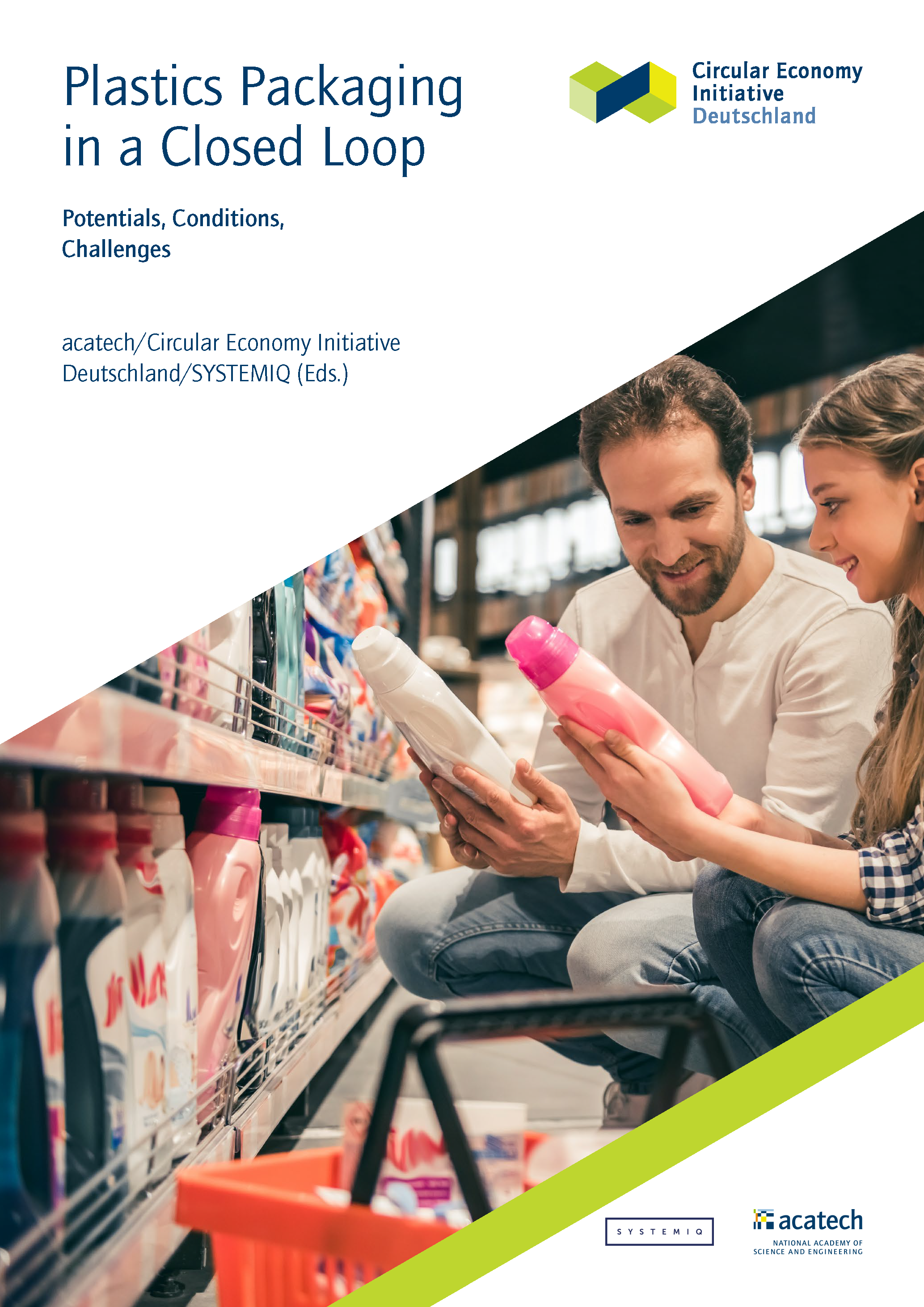Plastics Packaging in a Closed Loop – Potentials, Conditions, Challenges
Project: Circular Economy Initiative Deutschland
Published: 15 March 2021
Author / Publisher: acatech, Circular Economy Initiative Deutschland, SYSTEMIQ
Packaging performs important functions that add economic, environmental and social value, making it indispensable to our modern lifestyle. However, as the amount of packaging we use increases, so does the amount of waste it generates. Plastic packaging in particular has become a highly charged social, political and environmental issue, as growing quantities find their way into the environment. Germany’s effective collection, sorting and recycling structures prevent packaging waste from entering the environment directly. However, even Germany, with its reputation for efficient recycling, has a comparatively low mechanical recycling rate for plastic packaging of 47%, while recycled materials account for just 10.9% of the plastics used in the packaging industry.
The public and policy debate about plastic packaging has already led to many positive changes in industry, but has also resulted in opportunities for political gain and knee-jerk reactions that are not always in the best interests of the environment. Consequently, the working group set out to provide an objective, well-founded basis for the debate, so that truly effective measures can be prioritised, paving the way for a circular economy for plastic packaging in Germany that is compatible with other sustainability goals such as climate action.
Between October 2019 und December 2020, the Working Group “Packaging” of the Circular Economy Initiative Deutschland developed a joint target picture 2030 and recommendations for action for the establishment of a Circular Economy for packaging. With a cross-value chain approach, the Working Group highlighted incentives and benefits for the recycling of packaging materials across relevant stakeholders and thereby identified options for action along the entire value chain.
With the report, the members support the initiation, implementation and long-term anchoring of the Circular Economy in Germany and beyond.
The 20 members of the Working Group “Packaging” are experts from leading academic institutions, German businesses and civil society across the entire packaging value chain. This composition allowed the group to achieve its goal of addressing the topic as holistically as possible.
In the course of its work, the working group has discussed the potential, barriers and possible trade-offs involved in a Circular Economy for plastic packaging, drafted a vision, undertaken two in-depth case studies of detergent packaging and cheese packaging, and formulated recommendations for the key stakeholders.
It also modelled the potential for reducing greenhouse gas emissions in circularity scenarios for 2030 and 2050. The results show that increasing the proportion of mechanically recycled material to 40%, the proportion of chemically recycled material to 20%, and the proportion of reusable packaging to 20% could save an average of approximately 4 million tonnes CO2 by 2050 compared to business as usual. However, the modelling also shows that, in the absence of additional measures, there would still be a substantial shortfall in terms of achieving both climate neutrality and closed-loop recycling, even in 2050. To accomplish a rapid and effective transformation of the packaging industry to a system based on circular value creation, it will be necessary to establish a framework that enables holistic, common solutions. A haphazard collection of individual goals and flagship projects will not be enough – coordinated measures must be implemented across the entire value chain.



